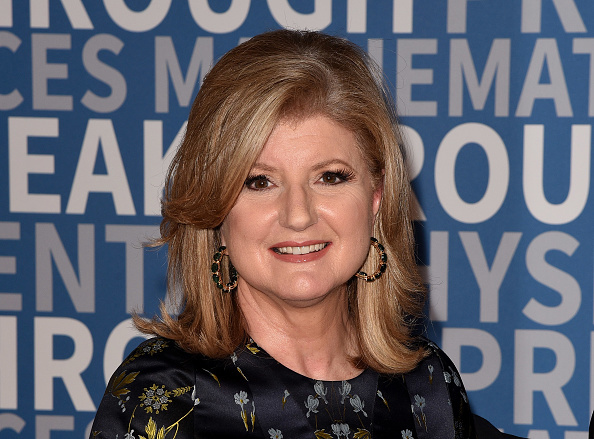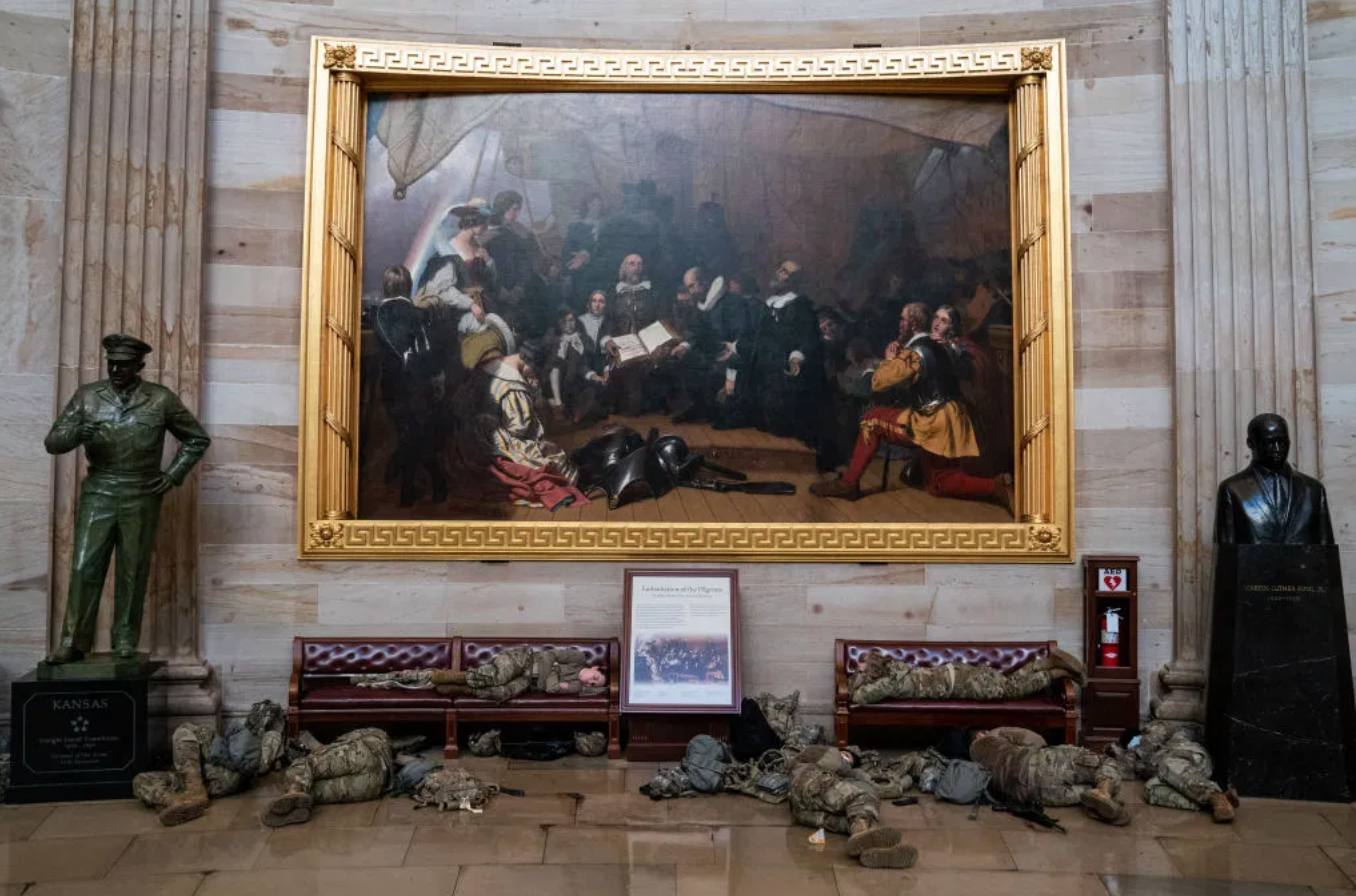Our current moment of multiple crises has created what Axios’ Erica Pandey has described as the “age of wartime CEOs,” with business leaders being tested not just by the pandemic, but also by a summer of social unrest, an election and now a violent attempt to reverse it.
One of the best ways for CEOs to rise to that challenge, Pandey writes, is to realize that culture is “a company’s strongest asset.” And company culture is also being tested as never before. As HR industry analyst Josh Bersin says, “Employee well-being has crawled out of the corner of the benefits department, and it has crashed onto the CEO’s desk.” And that’s because employees themselves have crashed. According to a survey last month by Spring Health, 76% of American employees are burned out.
When you look at the challenges being faced by CEOs, the wartime metaphor doesn’t seem likea stretch. Crises put leadership — or the lack of it — into stark relief. There’s no neutral ground. And yes, as we’ve seen at Thrive over the past year in the companies we’re working with, employee well-being has come to dominate the business conversation. But what we’ve also seen is that employee well-being has to start at the top.
Too many leaders still buy into the misguided notion that urgent or chaotic times require them tobe in constant motion and always on, or that they somehow have to match the frenetic pace of the moment. In fact, the opposite is true. The best way to lead a company forward is by also looking within. Because it is judgment that we need from leaders in moments of crisis, not just stamina. And only by looking inward can leaders tap into the innovative and creative ideas that the times demand.Take it from some actual wartime leaders.
The Roman Emperor Marcus Aurelius is known as a Stoic philosopher and author of Meditations. But he also spent his 19 years on the throne in near constant war, and 14 of these 19 years battling a terrible plague. And he met that challenge by seeking strength in the calm eye of the hurricane. This was his lesson for wartime leadership: “People look for retreats for themselves, in the country, by the coast, or in the hills. There is nowhere that a person can find a more peaceful and trouble-free retreat than in his own mind… So constantly give yourself this retreat, and renew yourself.”
Another wartime leader, F.D.R., came up with his idea for the Lend-Lease program, which helped Britain continue to resist the Nazis, while taking a break on a naval ship in 1940. The trip had drawn criticism — the world was in crisis and Britain was teetering on the brink of defeat. But F.D.R. knew what he was doing. And as for his wartime counterpart across the Atlantic, Winston Churchill is actually credited with coiningthe term “power nap.” As he said, “Don’t think you will be doing less work because you sleep during the day. That’s a foolish notion held by people who have no imaginations. You will be able to accomplish more.”
The connection between well-being and performance is highlighted in the revised training field manual for peak performance that the Army released in October — its first update in eight years. Now known as the “FM 7-22 Holistic Health and Fitness” manual, the updated version contains sections on sleep, meditation, serving others, and “spiritual readiness,” defined as “the development of the personal qualities needed to sustain a person in times of stress, hardship, and tragedy. These qualities come from religious, philosophical, or human values and form the basis for character, disposition, decision making, and integrity.”
The reason for “sleep readiness,” the manual advises, goes beyond just the physical effects of sleep deprivation: “The brain requires sleep to maintain normal function. Sleep is necessary to sustain not only alertness, but also higher order cognitive abilities such as judgment, decision making, and situational awareness.” One tool to maintain sleep readiness “to restore wakefulness and promote performance” is strategic napping!
The revised field manual is a great example of an effort going on across our cultureto get rid of the myth that the way to get through a crisis is to always power through instead of also making time to power down. “The Army has always had an internal dynamic that real men don’t need sleep and can just push on, and it’s incredibly stupid,” Lt. Gen. David Barno, former commander of combined forces in Afghanistan, told The New York Times.
In fact, Admiral Jim Stavridis (Ret.) refuted this delusion in a piece on Thrive entitled “Sleep Is a Weapon.” As he put it: “That sort of cultural approach in the military — of the leader as super-human and not in need to rest — is a mistake, and our military leaders must recognize that to make the right decisions — ethical, moral and tactical — they must regard sleep as a weapon that strengthens and enhances their performance as surely as the latest technology. Rested commanders are the best commanders.”
For an example of how this delusion is still hanging on, we can look to the viral photos this week of National Guard troops trying to sleep on marble floors and slumped against the walls of the Capitol rotunda. In a letter to Army Secretary Ryan McCarthy, Reps. Rosa DeLauro and Betty McCollum wrote, “With the uncertainty for needed rest and recoup time in flux, and to ensure that the Guard members are fully able to execute their protection mission, we urge you to make available cots or other equipment to more easily facilitate their ability to rest while they are on Capitol grounds.” Given the stakes of their mission, and that it’s not going to be a one- or two-day affair, let’s hope the Army finds an alternative solution for sleep readiness.
And it’s not just sleep. Breathing is also a super power acknowledged by the U.S. military. In the Navy, SEALS have long practiced a stress reduction method called box breathing. It works by activating our parasympathetic nervous system, which can lower our stress. All you have to do is inhale for a count of four, hold for a count of four and exhale for a count of four. “The best, most effective warriors practice some form of controlled breathing, especially during combat,” said former Navy SEAL commander Mark Divine. “Not only do you feel calm, but really the quantity of thoughts you have will be lessened.” Because in a crisis, it’s not the quantity of our decisions that matter, but the quality.Box breathing helped inspire our Thrive Reset tool in our Thrive ZP app, which allows you to lower your stress levels in just 60 seconds by creating a personalized Reset guide with images, quotes and sound that bring you calm, while a guided breathing bubble helps you consciously inhale and exhale, and quickly feel less overwhelmed.
Yes, these are challenging times for CEOs. The fundamental relationship between employees and companies is in flux and being rewritten. Employees expect more from the companies they work for, and the public expects more from the companies and brands it patronizes. As Pandey writes, leaders have to acknowledge the chaos and can’t be silent. But busyness and being always on can do just as much damage as silence. How a company connects with its employees, its values and the public has never been more important. But bringing all of that into alignment means that leaders also have to first connect with themselves.
Subscribe here for Arianna’s On My Mind Newsletter, where you’ll find inspiration and actionable advice on how to build healthy habits, resilience and connections in our unprecedented times.


